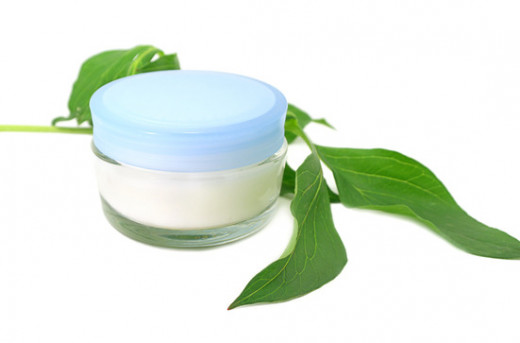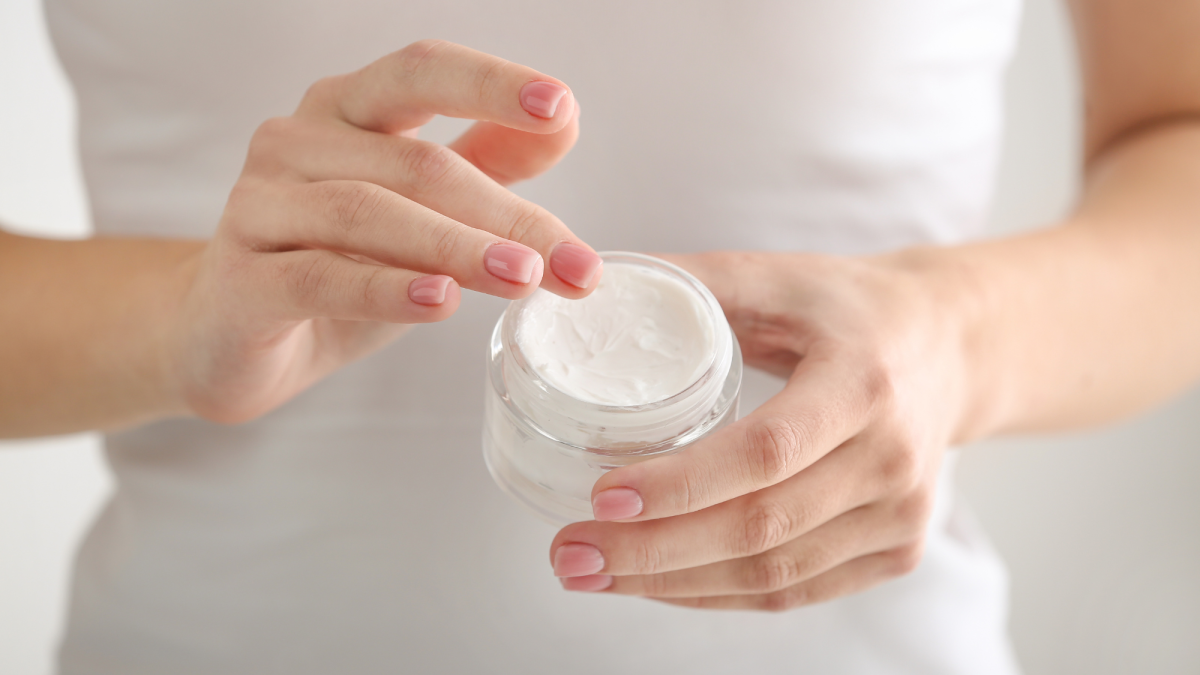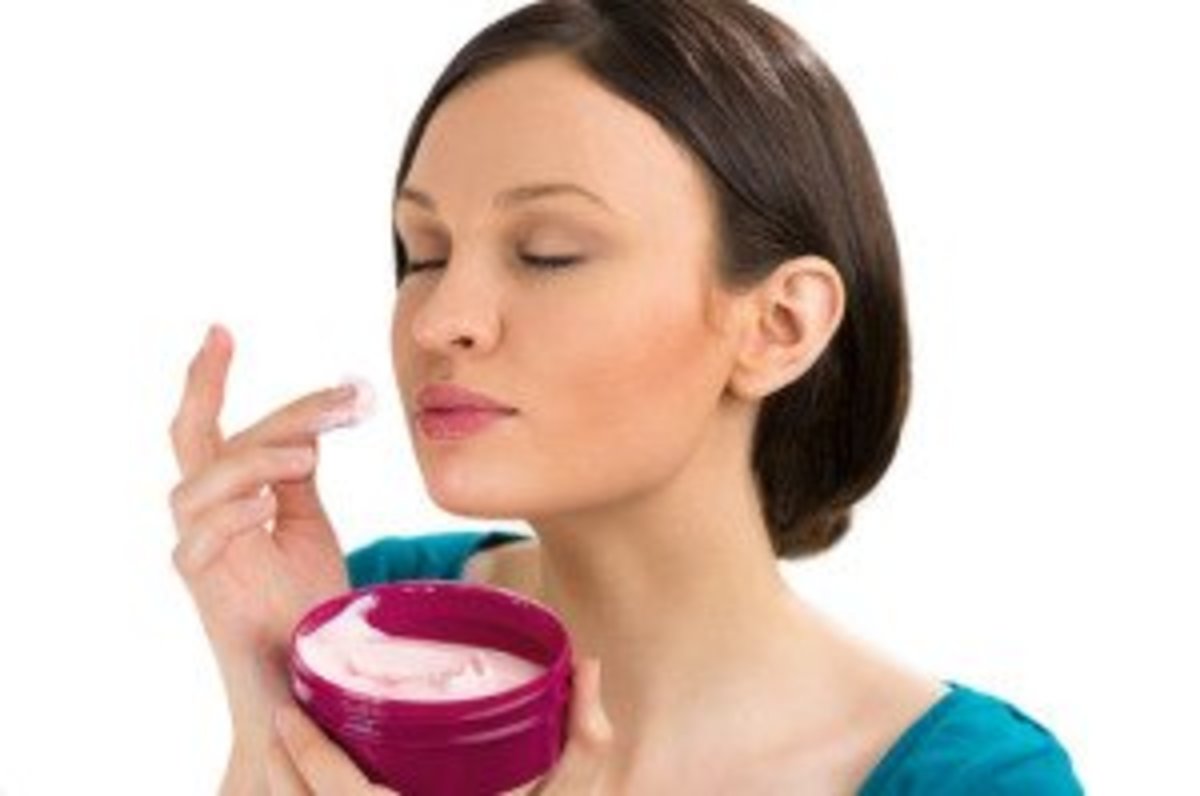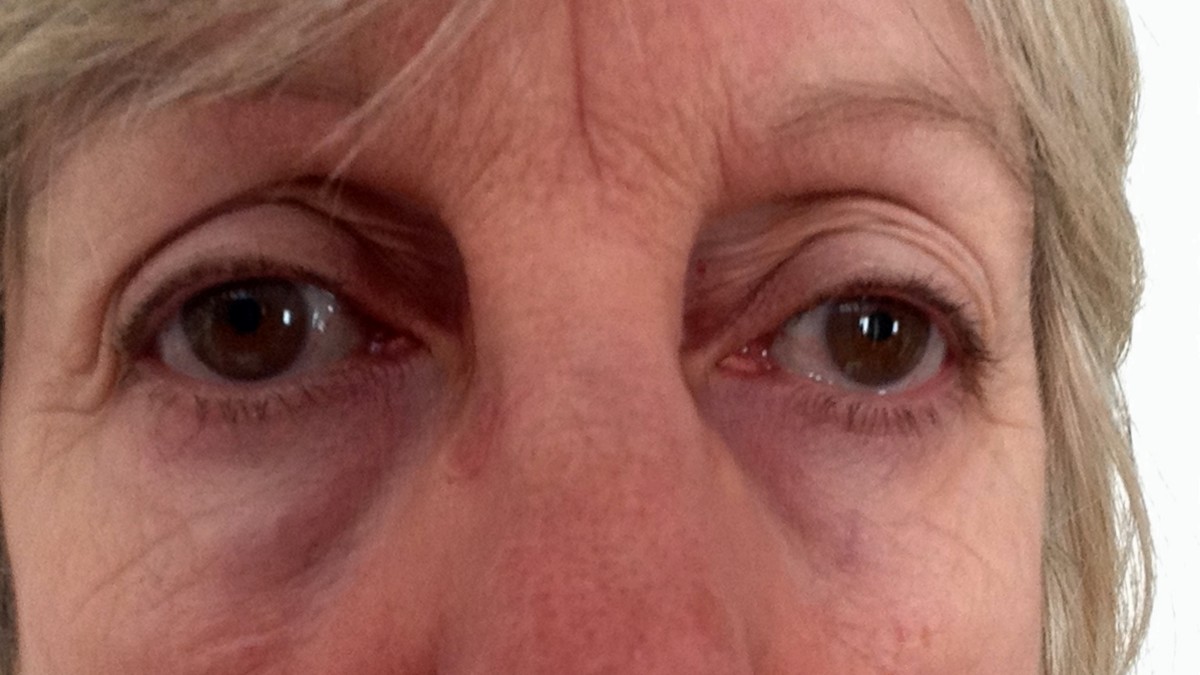The Dangers of Skin Whitening Chemicals

Why Do People Use Skin Lightening Products?
The quest for whiter skin is not a new concept. As far back as Elizabethan times it was considered fashionable and even “aristocratic” to have a ghostly white complexion with crimson lips and bright eyes. Woman, who could afford it, used a paste of white lead and vinegar as a type of foundation to powder their faces, neck and bosom. They achieved their deep crimson lips with a mixture containing red mercury sulfide.
We now know that lead and mercury are potentially toxic to the body so it is no surprise that these beauty techniques caused numerous skin problems, ultimately destroying the outer layers of the skin and sometimes turning the skin a blue-grey colour. Despite these problems, these poisonous products were used well into the 18th century. In fact, mercury has been used as a skin lightener even in modern times and can still be found in skin lightening creams and soaps today.
In modern times it is more common for woman to use skin whitening products to treat uneven skin tones and a range of problems associated with hyperpigmentation, such as dark spots or patches, melasma and acne scarring. These problems may be caused by hormonal problems, birth control pills, skin trauma or sun damage and there are numerous products available designed to lighten these problem areas.
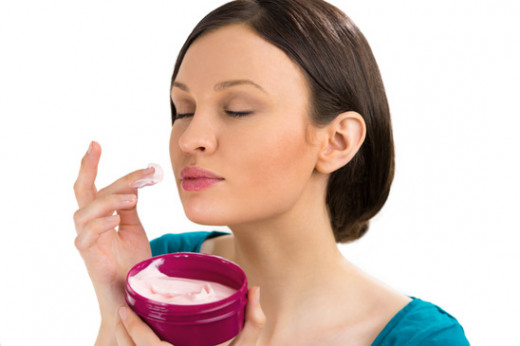
How Skin Lightening Products Work
Skin lightening products contain ingredients that work to reduce the amount of melanin (brown pigment) in our skin. This is achieved by inhibiting the production of the enzyme, tyrosinase, which is required for the melanocytes to produce melanin.The difference in colour between light and dark skinned individuals is not due to the number of melanocytes in their skin, but to the level of activity in the melanocytes.
Skin whitening products can help to treat the problems associated with hyperpigmentation (an overproduction of melanin), however, the use of chemically-derived bleaching agents to achieve this result can be potentially dangerous and carries the risk of further complications.

Toxic Skin Whitening Ingredients
The most common danger, when using chemical-based skin whitening products, is the continual use of these products. Prolonged exposure to toxic whitening chemicals has the potential to produce adverse side effects such as skin discoloration, internal organ disease and even cancer.
Chemicals traditionally used in skin whitening products include mercury, streroids and hydroquinine.
While the amount of these ingredients will vary from product to product some lightening chemicals have already been banned in certain countries.
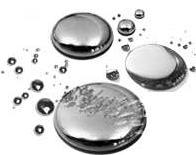
Mercury
Mercury is readily absorbed by the skin but it is not easily removed from the body which means toxicity levels in the body will rise with repeated use. The initial side effects when using mercury for skin lightening may include skin rashes, skin discoloration and scarring.
Mercury has been linked to many illnesses and the World Health Organisation advises that using mercury on a long term basis can produce several adverse effects such as kidney damage, depression or psychosis, and disorders of the nervous system.
The Food and Drug Administration (FDA) first banned the use of mercury in skin-bleaching and lightening products back in 1990 but it does not routinely conduct testing on cosmetics released to the market.
In 2010, in an independent investigation, the Chicago Tribune newspaper sent 50 skin-lightening creams for testing to a certified lab. Some had been purchased online and some bought in stores in Chicago. Six products were found to have amounts of mercury banned by federal law. The tests showed that rogue skin lightening products are still available out there on the market.
In August 2013, the FDA warned consumers to avoid mercury poisoning by not using foreign-made skin lighteners

Steroids
Cortisone and steroid creams, like Clobetasol, are not intended for skin lightening use. Rather, the skin lightening seen is a “side effect” of their real purpose which is to reduce the inflammation from itchy skin conditions like eczema, psoriasis or dermatitis.
When steroids are prescribed by a physician they come with set instructions and the usage is generally kept to a minimum of a few short weeks.
Topical corticosteroids can appear to lighten the skin because they act as “vasoconstrictors” causing the blood vessels to constrict (become narrow) so the flow of blood to an area is slowed. The skin in this area will take on a whiter appearance which explains why the skin becomes "lighter" so quickly compared to using other lightening ingredients.
Steroids can also slow the process of cell renewal which, in turn, slows the formation and activity of the melanocytes meaning less pigment is produced. The down side of slowing the skin’s natural regeneration process is that the epidermis also becomes thinner.
Many people complain of the side effects of thinning skin and the appearance of green veins when using topical steroids. This increases the likelihood of physical trauma or permanent damage to the skin. The skin will become more sensitive to chemical and environmental factors and there will be an increased risk of sun damage and pigmentation problems.
Although illegal without a prescription, some skin whitening creams contain steroids so potent they can suppress your immune system and cause serious health problems. The high dose of steroids found in some illegal skin whitening creams has been found to also disrupt the body's hormone levels and, in extreme cases, disorders such as Cushings syndrome (which affects the adrenal glands) may result.
These steroids are often not listed as an ingredient in black market skin lightening products so the most dangerous bleaching creams often go undetected.
Dr Nick Lowe - The Dangers of Skin Lightening Chemicals
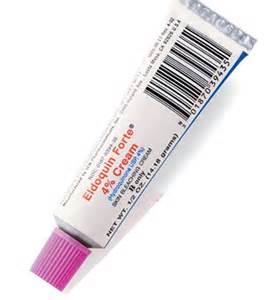
Hydroquinine
Hydroquinone ,C6H4(OH)2, is a chemical agent used in hair dye, film processing and the production of rubber.
Hydroquinine is also a common skin lightening ingredient that has been used in whitening creams and treatments for many years. Hydroquinine is an effective bleaching agent because it actively inhibits the production of the enzyme, tyrosinase, in the melanocytes, thus reducing the output of the pigment melanin.
Hydroquinone has been the subject of much controversy over the years and, in Europe, Japan, and Australia this chemical is already banned for sale as a skin lightener. There have been many groups calling for the FDA to ban this chemical in the USA due to the serious health risks it poses.
While a ban was proposed by the FDA in 2006 currently skin-lightening products that contain up to 2 % hydroquinone may be sold over-the-counter in the U.S. and products that contain up to 4 % hydroquinone can be obtained with a prescription.
Although the full extent of the dangers of hydroquinone are still not known, studies have indicated that it is carcinogenic and can cause additional health problems such as liver damage, thyroid disorders and adrenal dysfunction.
Hydroquinine is considered to be cytotoxic (toxic to cells) and mutagenic, which means it is capable of changing the structure of the cell's DNA and increasing the rate of mutations.
Common side effects when using hydroquinine include skin rashes, a dryness or cracking of the skin, excessive redness and a burning sensation.
If used for extended periods of time, hydroquinone can often cause a blue-black skin discoloration, a condition known as “ochronosis”. Ochronosis is a long-term skin condition which is more common in dark-skinned people.
While hydroquinone works to reduce the amount of melanin in the skin it does, like other skin lighteners, make your skin more susceptible to the sun’s UVA and UVB rays. This can lead to serious sunburn and an increased risk of certain types of skin cancer.
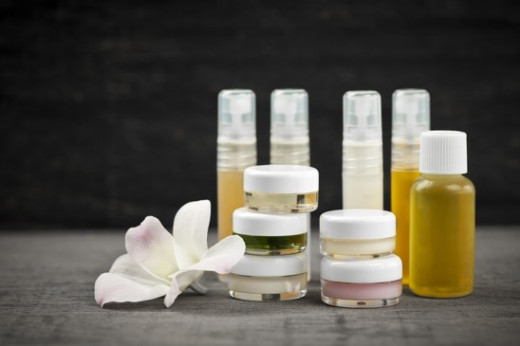
Safer Alternatives For Skin Whitening
While these chemicals were once the standard for skin whitening recent evidence - showing the long term danger of using these ingredients - has prompted researchers and skin care companies to look to nature for safer alternatives and develop skin lightening products that are non-toxic to reduce the risk of serious side effects.
Many of these products, like Meladerm Pigment Reducing Complex (developed by Civant Skincare), are plant-based with little-to-no side effects. They include natural pigment reducers that have been clinically proven to inhibit melanin production in the skin.
While natural skin lightening products do vary they will generally include ingredients such as arbutin, emblica, liquorice, mulberry extract, kojic acid or Vitamin C.
They will often advertise that they are "mercury or hydroquinine free".
In most cases, these natural whitening products have been found to work very well to lighten the skin, without the risk of serious side effects. Like most natural remedies, they can take a little longer to see the results but the benefit to you is achieving a healthier , more even skin tone without the use of potentially harmful chemicals.
There are also many homemade skin lightener remedies that you can try. Have a search on the internet. Generally these recipes include ingredients such as lemon juice, yoghurt, gram flour, turmeric or cucumber that you already have in your pantry.
